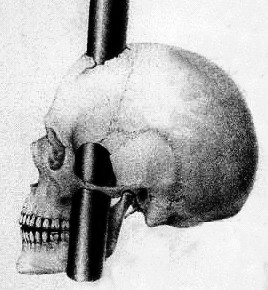What Would Jesus’ Brain Look Like? Love, Exemplars, and Brain Structures III
Jesus’ brain must have made a difference in who he was and how he loved. Recent neuroscience offers research and theories that prompt us to think anew about Jesus of Nazareth.
In previous essays, I have defined love and noted how repeated expressions of love form the lover into someone we rightly call an exemplar of love. In this essay, I look especially at Jesus as exemplar and what his brain must have been like.
Christians believe the best model of love is Jesus Christ. Becoming like him –Christlikeness – involves expressing love. Christians rely upon God’s acting to inspire and empower them to love in response to God’s initiating – prevenient – action in their lives. They love when they “work out their own salvation,” for “God is at work within” them “both to will and to work” for God’s loving purposes (Phil. 2:12).
A lover’s relationships with others influence the forms his or her love takes. An often-overlooked dimension of a lover’s relations, however, is the lover’s own bodily conditions and constraints. In particular, neuroscience suggests a loving person’s brain plays a role in his or her expression of love.
A Damaged Brain Affects Love
Research on the brain is growing rapidly. Accounting for all of it is far beyond the scope of this essay. But I do want to mention a few studies of special significance for research on love.
At least since the famous Phineas Gage incident, neuroscientists have studied the role of the brain for morality. While working for the railroad in 1848, an explosion propelled a metal rod through Gage’s eye socket and out the top of his head. His frontal neocortical lobe was severely damaged.
Surprisingly, Gage recovered from the blast relatively quickly. Apparently due to the accident, however, he went from being reliable, efficient, and well balanced to being irreverent and unsympathetic. The post-accident Gage was capricious, indecisive, and seemingly unable to plan for the morrow. “Gage was no longer Gage,” his crewmates famously remarked.
The dominant hypothesis in neuroscience is that Gage’s character changed because he suffered neocortex damage. In the 1990s, work by neurologists Antonio and Hanna Damasio supports this hypothesis. The Damasios document a number of contemporary cases in which the neocortical neurons necessary for empathy are destroyed or rendered dysfunctional from brain damage.
Empathy and Brain Damage
In one research project, the team studied thirteen adult patients who experienced prefrontal cortex damage. The wife of one patient with brain damage testifies that her husband was caring and affectionate prior to his brain alteration. After it, however, her husband reacted with indifference when she became upset or distressed. Despite the fact that his verbal and performance IQ scores ranked in the high 90th percentiles, the husband lacked empathy. Adults with damaged frontal lobes could not employ social and emotional facts to respond sympathetically.
 A second study by the Damasios and some of their colleagues analyzed two individuals in their early twenties who had suffered prefrontal neocortex damage. The damage suffered by these two occurred, however, before each reached the age of two. Although both performed normally on standard measures of cognitive performance, both showed signs of deficient behavior control and poor peer interaction. Neither demonstrated a sense of guilt or remorse for actions that would seem obviously immoral to others.
A second study by the Damasios and some of their colleagues analyzed two individuals in their early twenties who had suffered prefrontal neocortex damage. The damage suffered by these two occurred, however, before each reached the age of two. Although both performed normally on standard measures of cognitive performance, both showed signs of deficient behavior control and poor peer interaction. Neither demonstrated a sense of guilt or remorse for actions that would seem obviously immoral to others.
Hanna Damasio concludes that after damage to this portion of the brain, “empathy, as well as emotions such as embarrassment, guilt, pride, and altruism, is not evoked. Consequently, personal and social decisions become defective.”
“Without the prefrontal cortex,” Damasio says, “empathy, along with other adaptive social behaviors, becomes impaired.” Various regions of our brains may influence our capacity to empathize well with others, but these studies show that the neocortex is especially important for some forms of empathy.
If empathy is one we respond to others when choosing to love, the lack or severe restriction of empathy will influence the kind and complexity of love we can express. If damaged segments of the brain can restrict one’s capacity for empathy – which the story of Phineas Gage and Damasio studies suggest – a healthy and well-functioning brain seems essential for at least some forms or expressions of love.
The issue brain damage brings to the fore intriguing questions. For instance, how much of the brain can be damaged before we no longer think it plausible that a person acts intentionally, in response to God and others, to promote overall well-being? Are some forms of love possible that do not require complex expressions or even the capacity for empathy? These questions have not been afforded sufficient empirical research.
Intentional Activity Changes our Brains
While some neuroscience research suggests that damage to the brain constrains the kinds and forms of love possible, other research suggests that our experiences influence brain structure.
One of the more interesting studies pertains to the brains of London cab drivers. In a study of the brain size – specifically the hippocampus portion, researchers discovered that the complex thinking required for driving a cab apparently generates a larger brain in cab drivers than in the average person. Researchers also found a correlation between the size of some brain regions and the length of time a cabdriver’s tenure.
Taking this very small sample of neuroscience research and the issues of love and exemplars suggests some preliminary conclusions. First, the work on brain damage suggests that while moral exemplars may not have higher IQs than others, they at least have functioning brains. Damage to the brain does not negate entirely the capacity to love. But severe damage apparently restricts some capacities to empathize and therefore the forms of love that require these types of empathetic response.
The brief neuroscience research mentioned suggests, secondly, that the loving done by exemplars – which is intentional and entails at least some cognitive employment – has a direct effect on the activation of areas in the exemplar’s brain. It may even be habitual love and repeated loving practices influence the size and structure of a lover’s neural network. More research would obviously need to be done, of course.
I suggest that a research program be undertaken to compare the brains of those who are known to have developed habits and characters of love – i.e., exemplars – be compared with those who did not love consistently nor develop loving characters.
Obviously, criteria would be needed for deciding who developed a loving character and who did not. But the testimonies of those who knew well both types of persons – those consistently loving and inconsistently loving – could serve as verification of the legitimacy of the specimens in this research program.
Jesus’ Brain Makes a Difference
And all of this has implications for what we might think Jesus’ brain would be like. It seems likely that Jesus’ brain would have been fully functioning and therefore similar to our brains in many ways. For instance, if Jesus expressed the kind of empathy that John suggests when Jesus heard of Lazarus’s death (Jn. 11:35), he must have had functioning brain supportive of robust empathy.
It may also be that Jesus’ repeated expressions of love – most Christians would confess that his sinlessness included loving perfectly from birth onward – would shape the physical structure of his brain. And perfect love from birth onward would mean his brain would be unlike any other human brain. Various neural networks and portions of Jesus’ brain must have been unique only to him. All others would have intentionally not chosen to promote overall well-being at least once in their lifetimes (Rm. 3:23).
 In sum, the one whom Christians consider exemplar of all exemplars – Jesus Christ – must have had a brain both similar and dissimilar to our own.
In sum, the one whom Christians consider exemplar of all exemplars – Jesus Christ – must have had a brain both similar and dissimilar to our own.
Of course, we don’t have access to Jesus’ brain to know any of this. But it may still matter. After all, Christians typically want to avoid the Docetic error of considering Jesus’ physical dimensions unimportant for theology and anthropology. Regarding Jesus’ human aspect unimportant has been deemed heretical by the Church.
In addition, were exemplars to possess neural structures significantly different from nonexemplars, it might give new meaning to Jesus’ phrase that you know the character of a person by the fruit generated by his or her life. Such fruit might be judged by both moral and neural measurements!
Conclusion
What would Jesus’ brain look like? We obviously don’t know. But the witness of Scripture suggests that Jesus loved perfectly from birth onward. And biblical authors call Christians to emulate Jesus, their perfect exemplar.
In the imitating of Jesus, Christians develop loving characters as they repeatedly respond well to God’s empowering and inspiring call to love. Their brains play a role in this responding. And the brains of virtuous people may actually end up “wired” in particular ways.
Those who love others may not only have the mind of Christ Jesus (1 Phil. 2:5), they may also develop brains that look similar to Jesus’ brain.

Comments
Tom, While I appreciate much of what you say here (as elsewhere), it seems to me that all the claims about Jesus’ brain are accidental to the central thrust of your argument. I’m no Docetist (and most days I’m not a dualist), but I’m just not seeing the argumentative work about the “Jesus’ brain” claims.
Tom,
I’ve had this open on my desktop for more than 6hrs today mulling it over.
As I consider the topic of the brain of Christ and its unique complexity, I began toying with how the evolutionary process of brains for creatures demonstrates in part how love,affection or simple affinity may be developed or the lack thereof. Animals may be trained to respond to the signals of their masters. Kindness seems from human perspective better received than torment. Certainly, we can provoke a animal.
It was C. S. Lewis who suggested in Mere Christianity that Christ is the one to whom humankind must evolve toward. Christ sets the standard for the new man.
How much different can our love become based upon the brain-love capactiy as demonstrated in Him.
Perhaps we will see Isaiah prophetic picture of the child playing near the hole of the cobra, or the wolf living with the lamb of that Messianic age come to be, all based on love that flows from Christ.
Since Jesus was the full human form, then his brain must have looked much like any other brain. Although I understand that since he was perfect from birth onward, I still believe that his brain looked the same as ours. God just had a different plan for him than God did anyone else. I have come to believe that there are many things God wanted to be unknown, and Jesus’ brain must have been one of them.
Tom, this is fascinating stuff.
I am glad to know about the famous Phineas Gage incident that demonstrates what happens when the neo-cortex of our brain is damaged. It seems Gage lost his ability to think rationally, and perhaps the limbic system (survival mechanism) of his brain took over making him unsympathetic and reactive. This seems to fit with the notion that the limbic system is the emotional center of our brain but can be overruled by frontal lobe input. There are places that specialize in limbic training (or brain training) and seek to engage the neo-cortex of the brain in this process. The addictive population can benefit from this therapy. Quite often an addict will regress into unsympathetic selfish responses that cause isolation and self destruction. The training offered helps them re-engage the neo-cortex of their brain in order to successfully address negative limbic responses. This is particularly important when you are dealing with chronic relapses.
It would seem Jesus’ brain contained a perfectly healthy limbic system. His character reflects a proper balance of the neo-cortex working with the limbic system. Some of this reminds me of the differentiating self as described by Edwin Friedman in family systems theory. Friedman suggested a person could handle their emotions with their thinking prowess. He talked about the neo-cortex and the reptilian complex (which is close to Limbic system) and how one obtains a more differentiated response to stimuli. In that case, I would say Jesus was the most differentiated person who ever lived. This discussion brought to mind a verse from the song, “Oh to be like thee”
Oh! to be like Thee, full of compassion,
Loving, forgiving, tender and kind,
Helping the helpless, cheering the fainting,
Seeking the wand’ring sinner to find.
research on the brain suggested what we already knew: what we do and how we act effect who we were. If by not loving others, our brain decided it does not need our pre-frontal cortex, so be it.
I am inclined to agree with Courtney. I believe that Christ entered into this world, with no higher or greater advantage than anyone else (aside from those with actual mental disabilities). I believe that to credit Christ’s ability to love to the fact that is brain is physically superior to ours, or others who do not love is to do him an injustice and to discredit the Biblical teachings about Christ’s humanly form. I do however believe that we can strive to become more Christlike and that we may “evolve” into more loving beings.
I wrote a paper this year that defined the greatest act of love was Jesus dying on the cross and the greatest exempler of love is Jesus. Interactions with life experiences are a key influence to how a person is going to love. Not only traumatic physical accidents can alter the mind but negative peer influences as well. If a person never experiences love or is never loved there idea of how to love is going to be greatly different than an individual who has a healthy concept of what love is.
One implication of our discoveries about how the brain affects our capacity to love may be the importance of praying for God to heal those we disciple. Perhaps the stubborn lack of progress in the hearts of some Christians is not always a lack of will or consecration; maybe Jesus just needs to heal the brain. Entire sanctification should include the brains and hearts.
I am not sure what to think about this blog. I think it is interesting. However, to say that Jesus’ love is directly attributed to his brain seems to lessen what he did. It leads to the question, “could another person love as well as Jesus if their brain was the same?” It seems to attribute Jesus’ love to the physical, rather than the spiritual submission that Christ had to God the Father. I do not like the idea that Jesus only loved because his brain made Him. This is a scary thought to me, it almost seems to take away Jesus’ divinity, and replace it with the physical.
zboruri tarom
}KLM|Bilete avion KLM|bilete de avion KLM|low cost KLM|KLM |Bilete de avion ieftine KLM|zboruri KLM|KLM | bilete KLM|KLM bagaj de mana}
view here ildl
[url=http://www.thomassaboinoutlet.co.uk]http://www.thomassaboinoutlet.co.uk[/url] xtvt
wkqb
http://www.qiinga.com/user/published/zhangzeli/ hhgo
http://www.easymash.in/index/user.php?login=applewp&view=profile xyljue
avion Bucuresti Nuremberg
zboruri cluj Tenerife
Bucuresti Amman
bilete de avion Niki
bilete de avion eftine
Germania zbor
avion Bucuresti SUA
It is interesting how much the brain is involved in feelings of empathy and love. Even more so is when trauma is caused to the brain that it can completely change someone’s personality and erase part of their personality. Such as Phineas Gage who got his head punctured by a rod and lived. He then ends up being a complete opposite person. It would be interesting to see what Jesus’s brain looked like and how much was empathy and love, which we all know it was, but it would be interesting to see how it would compare to someone else’s brain.
I love reading about blogs like this based on psychological and biological studies. The fact that cab drivers have larger brains than ours, depending on the time they spend driving, was so interesting to me! I would have thought that since mostly everyone drives, we would all be on their same level, but I never considered the different lengths that we drive. It was also interesting to read about the hypothesis of Jesus’ brain size because I never even think about the biological aspect of Jesus. I always just imagine him just like us, but to be able to do everything he does, it would probably have to be dissimilar. This is something I am going to think more about in the future but I think that His brain had to be fairly similar to ours or else he would have probably looked different.
How much can the brain be damaged before we no longer think it to be plausible. A good question.. Conscious and Consciousness being almost of the same . And the difference at a child a teenager and an adult. The experience at the three and the keeping of good health. The helmet of salvation comes into mind with it believing what is of ocurrence. Conscious of the ideal and conscience of its usage. In psychology simple and plain what we put in it as so much of what we put on it. Like oil in a engine and earrings on a dresser. The external for the elements and the internal for what’s relevant. My orange skully hat cocked to the side as I chill come the elements , believing that Jesus Christ is coming back(Jude 14) a internal appeal is heavensent.!!! Relic/Church Boy Nehemiah/ Terrill TC!